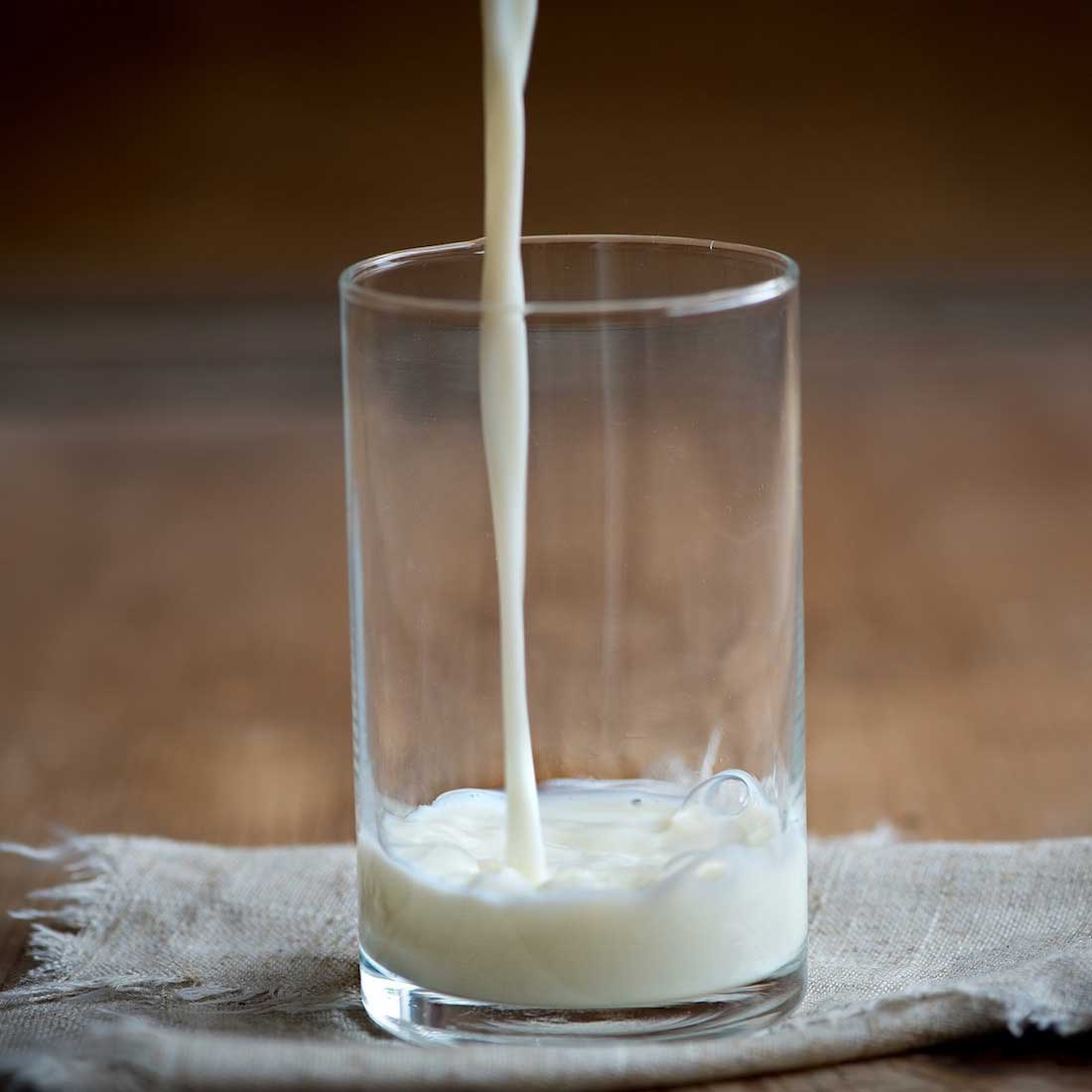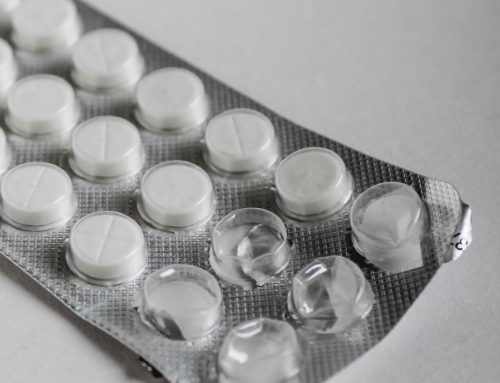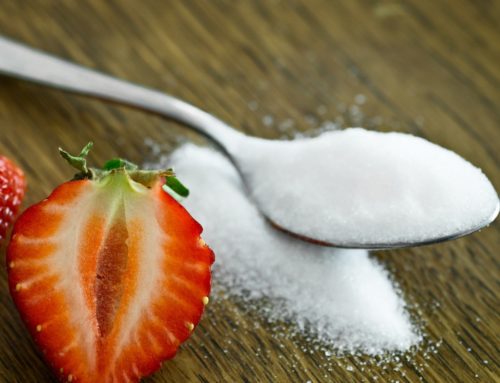We’ve been told for so long that milk is part of a healthy diet. This is wrong. In fact, milk can make us weaker and sicker, and increase our risk of fractures.
We don’t need milk for strong bones. Cow’s milk is good for cow babies and can sometimes damage our gut and immune system.
But, What About Calcium?
We often hear that we need the calcium in milk for strong bones. This isn’t true.
Calcium comes from nuts, seeds, and vegetables, too. Vitamin D is essential to be able to use the calcium that we ingest.
We do need calcium. Calcium builds our bones and teeth. In addition, calcium is necessary for blood clotting, the transmission of nerve impulses, and the regulation of the heart’s rhythm. 99% of the calcium in the human body is stored in the bones and teeth. The remaining 1% is found in the blood and other tissues.
5 Issues with Drinking Cow’s Milk
1. Lactose intolerance
We are lactose intolerant if we have difficulty digesting lactose, a sugar found in dairy products. Lactose is normally broken down by an enzyme called lactase. Those of us who are lactose-intolerant have difficulty either producing lactase or absorbing lactose into the bloodstream. Consuming dairy products if lactose-intolerant can lead to unpleasant digestive symptoms such as bloating, diarrhea, and gas.
65% of us lose partially or completely the ability to digest lactose after infancy. That’s a lot of people! More than 90% of adults in some East Asian communities are lactose-intolerant. People of West African, Arab, Jewish, Greek, and Italian are often lactose-intolerant as well.
2. Increased risk of ovarian cancer
A study suggests that the risk of ovarian cancer in females may increase with milk consumption. Changes in the hormone composition of dairy milk due to modern production processes may be the cause. “The milk that we are now consuming is quite different from that consumed 100 years ago,” notes Dr. Ganmaa of the Medical University of Yamanashi.
3. Increased risk of fractures
Those of us who drink milk may tend to fracture our bones more often . Karl Michaelsson, professor at the Uppsala University of Sweden, also points out subjects in his study who drank more milk showed greater oxidative stress. This increase in oxidative stress may lead to more rapid aging, a higher risk of cancer, and more instances of cardiovascular disease.
4. Increased risk of prostate cancer
Dr. Giovannucci of Harvard University finds that consuming too much calcium likely increases risk of prostate cancer . Male subjects in his study who drank two or more glasses of milk daily were at twice as much risk of developing advanced prostate cancer than those who drank no milk.
The science behind milk and health isn’t settled. However, for most of our evolutionary history we drank no milk after breastfeeding as babies. In addition, many Asian populations which do not consume milk have strong bones. Enough research exists for me to advise my patients against large quantities of cows milk.
Here’s an unpleasant fact: the US Department of Agriculture production standards allow up to 750 million pus cells per liter of milk.
5. As much sugar as soda
Sugary chocolate milk is even worse than regular milk and we are encouraging our children to drink it. A result of the National School Lunch Program , notes Dr. Ludwig, is that more and more children are drinking chocolate milk which has almost as much sugar as soda .
But what about the food pyramid?
Since childhood, we have been told by our teachers and doctors to drink many glasses of milk daily. However, the government recommendation they based this advice on may be wrong. Penny Kris-Etherton, PhD, RD, and professor of nutrition at Pennsylvania State University notes that the US Department of Agriculture (USDA) decided to recommend three servings of milk per day as milk is high in potassium. Vegetables and fruit are rich sources of potassium as well, but experts decided that encouraging milk consumption would be easier than encouraging us to eat vegetables.

Non-Dairy Alternatives to Cow’s Milk
Goat’s milk
We tell mothers to breastfeed babies in part because a mother’s milk contains chemical messengers that direct the baby’s development. Cow’s milk has chemical messages meant only for calves. It is, consequently, no surprise that cow’s milk commonly promotes migraines, nasal allergies, asthma, sinus problems, eczema, and rashes. If you have an autoimmune disorder, you could try stopping cow’s milk products for a few months to see if it makes a difference. Goat’s milk protein more closely resembles the protein in human milk and may be better tolerated by some people.
Other types of non-dairy milk
Try unsweetened almond, coconut, hemp, rice, and soy beverages. These are all tasty alternatives.
How to Get Your Calcium Without Dairy
Dark green, leafy vegetables, such as kale and collard greens are high in calcium. Do note that spinach and chard are exceptions – they contain oxalic acid, which combines with the calcium to form calcium oxalate, a chemical salt that makes the calcium less available to the body.
Dried beans and legumes are also wonderful sources of calcium.
Chew on This
Explore! Enjoy the much richer and more diverse diet you will have without cow’s milk. Be informed and live well.




